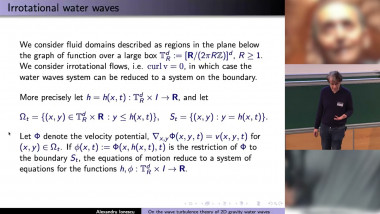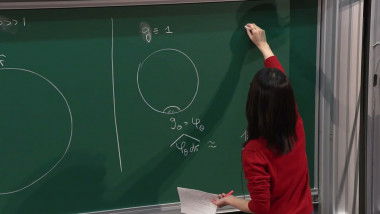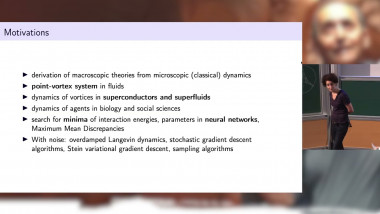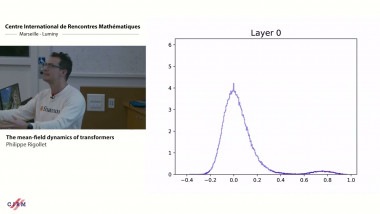Apparaît dans la collection : Chaire Jean-Morlet : Equation intégrable aux données initiales aléatoires / Jean-Morlet Chair : Integrable Equation with Random Initial Data
I will discuss polynomials $P_{N}$ of degree $N$ that satisfy non-Hermitian orthogonality conditions with respect to the weight $\frac{\left ( z+1 \right )^{N}\left ( z+a \right )^{N}}{z^{2N}}$ on a contour in the complex plane going around 0. These polynomials reduce to Jacobi polynomials in case a = 1 and then their zeros cluster along an open arc on the unit circle as the degree tends to infinity.
For general a, the polynomials are analyzed by a Riemann-Hilbert problem. It follows that the zeros exhibit an interesting transition for the value of a = 1/9, when the open arc closes to form a closed curve with a density that vanishes quadratically. The transition is described by a Painlevé II transcendent.
The polynomials arise in a lozenge tiling problem of a hexagon with a periodic weighting. The transition in the behavior of zeros corresponds to a tacnode in the tiling problem.
This is joint work in progress with Christophe Charlier, Maurice Duits and Jonatan Lenells and we use ideas that were developed in [2] for matrix valued orthogonal polynomials in connection with a domino tiling problem for the Aztec diamond.
















